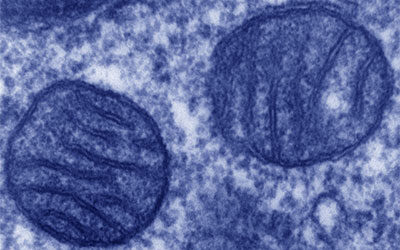If I eat healthy sources of grass-fed animal protein, do I still need to supplement B-12? How important is it? Thanks!
Sally’s response:
One of the most important nutrients we get from animal foods is vitamin B12. The vitamin is also the largest known biomolecule and the only nutrient with a stable carbon-metal bond. One molecule of cobalt lies at the center of each B12 molecule, which has the approximate (and awesome!) chemical formula of C61-64H84-90N14O13-14PCo. Isolated B12 is a crystalline compound with a bright red color, due to the presence of cobalt. One practitioner has referred to B12 as “those ruddy drops that cheer sad hearts and strengthen faint hearts.”
Vitamin B12 works with folic acid in many body processes including synthesis of DNA, red blood cells and the insulation sheath (the myelin sheath) that surrounds nerve cells and facilitates the conduction of signals in the nervous system. Severe depletion manifests as pernicious anemia, which was invariably fatal until the discovery of B12 in liver. But long before anemia sets in, other conditions may manifest, most often neurological problems (numbness, pins and needles sensations, a burning feeling in the feet, shaking, muscle fatigue, sleep disorders, memory loss, irrational anger, impaired mental function and Alzheimer’s) or psychological conditions (dementia, depression, psychosis and obsessive-compulsive behavior). President Kennedy has been quoted as having said he would never have become president without injections of B12.
ABSORPTION
Absorption of vitamin B12 is a complex process, subject to problems at several points.
B12 from animal food enters the stomach as part of animal proteins and must first be liberated by pepsin and hydrochloric acid. Free B12 then attaches to R-protein, which is released from the salivary cells and parietal cells (the same cells that release hydrochloric acid). To be absorbed efficiently, B12 must attach to a protein called intrinsic factor (IF) which is also secreted in the stomach. This cannot happen until the R-protein complexes are broken down by pancreatic enzymes in the small intestine. B12 then binds with the intrinsic factor and proceeds through the gut to the lower portion of the small intestine, where the intrinsic factor-B12 complex attaches to cell receptors, a process that involves calcium.
Thus, deficiencies in pepsin, hydrochloric acid, R-protein, pancreatic enzymes, intrinsic factor, calcium and cell receptors can all lead to B12 deficiency through blocked absorption. Once in the bloodstream, transport proteins bind to B12 and deliver it to the cells. Within the cells, enzymes liberate B12 from the protein complex and convert it to its two coenzyme forms, methylcobalamin and adenosylcobalamin. Deficiency in the required enzymes can block this conversion.
Because the absorption process is so complicated, and therefore subject to various blocks, many people–particularly the elderly–may develop deficiencies even though they are taking in plentiful B12 in their food. Fortunately, the body absorbs about 1-5 percent of free B12 by a process of passive diffusion. Thus supplementation with large doses of crystalline B12 or with foods extremely rich in B12 can successfully treat deficiencies caused by compromised protein digestion or lack of R-protein, intrinsic factor or pancreatic enzymes. Supplementation with the coenzyme forms methylcobalamin and adenosylcobalamin (the forms found in the cells) can overcome B12 deficiency in the cells caused by lack of, or malfunction of, conversion enzymes.
AN EXCEPTION TO OUR RULE
We have consistently advised obtaining vitamins from food (including superfoods) rather than with vitamin supplements. One good reason to avoid supplements derives from research indicating that they can interfere with B12 uptake, exacerbate the symptoms of B12 deficiency or even cause the creation of B12 analogs that increase the body’s need for B12.
However, when it comes to B12 itself, supplementation with isolated B12 is often necessary and appropriate. The many factors in our modern lifestlye that block the complicated uptake pathways of this important nutrient—from nutrient deficiencies to exposure to toxins to factors in processed foods that cause reduced stomach acid, autoimmune disease and enzyme disruption—make it difficult to obtain sufficient quantities from our normal diet; and since vitamin B12 in supplements is produced in exactly the same way as B12 in nature, that is, by bacterial fermentation, the danger of high doses in most cases is negligible.
B12 supplements have the potential of making life better for a large portion of the population, and not just the elderly. Regular testing and treatment with supplements as needed is an important step in the transition from the modern diet back to a nutrient-dense traditional one, when, after a generation or two, supplements of any kind will no longer be needed.
excerpted from the article Vitamin B12: Vital Nutrient for Good Health by Sally Fallon and Mary G. Enig, PhD
photo: Cambodia: Building Community ©Betty LaDuke | Artist Betty LaDuke works with Heifer International to end world hunger by offering families in need long term solutions that work. One of the cornerstones of Heifer’s approach is “Passing on the Gift”, a cycle of sustainability where people share the offspring of their animals along with their knowledge, resources, and skills to create a circle of self-reliance that reaches around the globe.










0 Comments